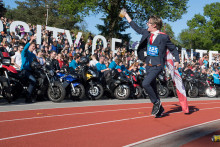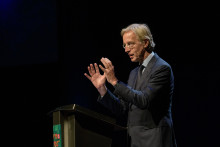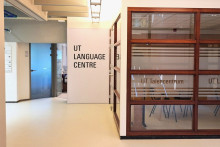arnold enklaar
Arnold Enklaar is a senior research associate at the BMS Faculty of the University of Twente. His research focuses on ethnic diversity in organizations, Dutch culture and cultural differences in international business.
Why did you decide to write such a book?
Enklaar: ‘I was doing research into ethnic diversity in organizations, on how various ethnicities work together. Through this research I’ve collected a lot of stories of how it really works for people, of what barriers ethnic minorities need to overcome in order to succeed. In this country, we are always busy with discussions about integration of foreigners. I think it’s good to know what they really experience before we jump into any debate.’
Is the book based on your research expertise?
‘It is meant for general public but it is based on scientific research. So much of our research doesn’t reach the public, and that is a shame. The binding factor of all my work is cultural differences. This books falls nicely into that theme. It focuses on integration in Dutch society, and so it includes mainly stories from people of Surinamese, Moroccan and Turkish origin.’
Can you summarize the main points of the book?
‘Based on the personal experiences I collected, it is not just one factor that determines a person’s success. It depends on language acquisition process, meaning at what age you arrive to the foreign country. At some point in life it becomes very difficult to learn the language. Career success also depends on the person’s religion. For example, some young Muslims might distance themselves from the Dutch culture, but in others Islam reinforces strong moral values and good work ethic. This of course improves their career. The person’s parents have a very strong influence as well. Some parents might have very low education, but they can still help their children. I remember one story of a Moroccan man, whose father was illiterate, he couldn’t read or write. He was a manual factory worker, but he took his son to the factory’s boss, showed him the office and explained the boss was successful because he’d studied hard. This way the parents can guide the children towards success. On the other hand, there are parents who are not involved with their children and let them do whatever they like. Many successful people told me that they grew up in stable families.’

UT researcher Arnold Enklaar
What was the most surprising thing you came across?
‘The most surprising insight for me was that some people from the third generation of immigrants are less integrated than the first generation. You’d expect it the other way around. However, many people from the first generation were the only foreign child in the neighborhood, the only international student in their class. Because of that, they naturally socialized with Dutch children. But ten years later, there were many other Turkish or Moroccan families living in the same neighborhood, and so there was no reason for the kids to socialize with Dutch people. The successful people were the ones who were extremely integrated in the Dutch society. There seems to be a direct connection between success and integration. This shows us how important it is to mix and not just stick to your own group. That counts for Dutch people too. Dutch people usually have their own circles which are very hard to penetrate for outsiders. We should make more effort to invite others in.’
What do you hope the book will achieve?
‘More understanding of why people have difficulties. It’s important to try to break through segregation. We should all break out of our circles. Also Dutch people should come out of their comfort zone. I hope it can help to step out of stereotypes.’







